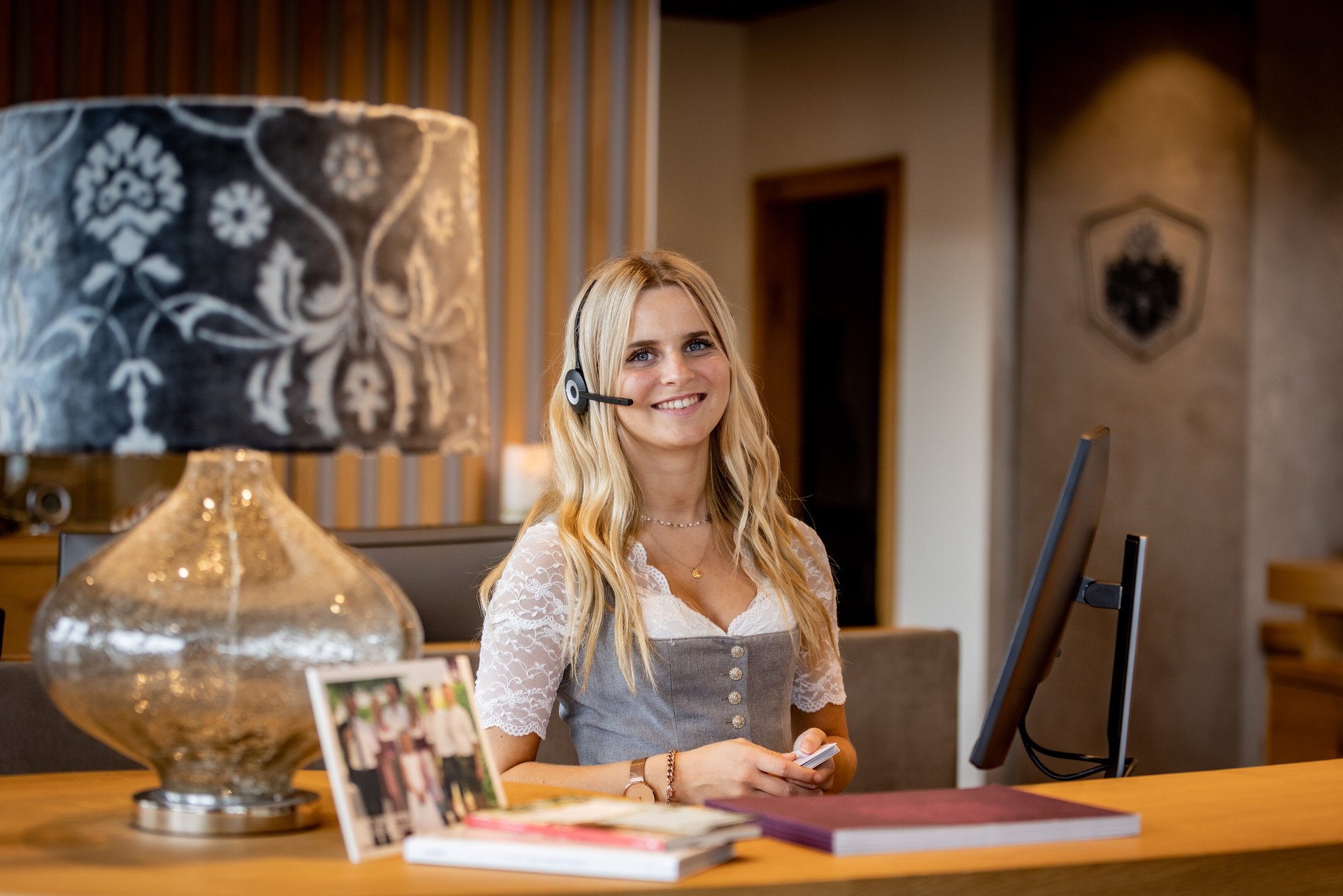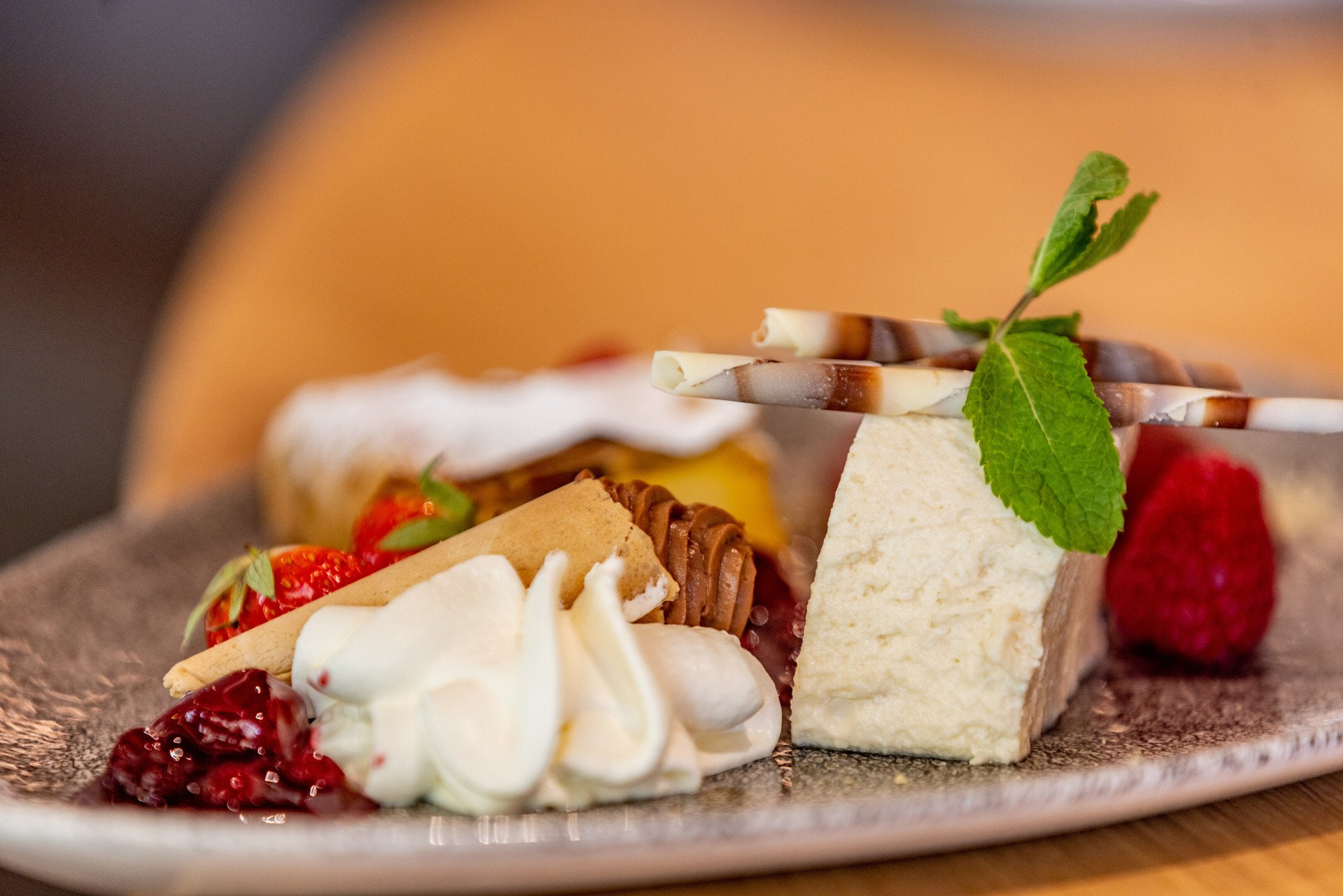hotel and hospitality assistant
Hotel and hospitality assistants carry out organizational and administrative work in a hotel or hospitality business. They are active in the commercial area as well as in the reception area. In service and in the kitchen, they mainly take on control and organizational tasks. In the reception area as well as in the service they have direct contact with the guests. Depending on the type and size of the business, they work together with other skilled and unskilled workers such as restaurant specialists, receptionists, catering specialists or chefs/cooks.
Hotel and catering assistants plan, organize and coordinate work processes in a hotel or catering business. They take booking requests from guests and travel agencies, create reservation plans, coordinate room occupancy and welcome arriving guests at the reception desk.
In the kitchen and service area, they assist in preparing daily menus, food and beverage menus and determine food and beverage needs, place orders, inspect deliveries and store merchandise. They also assist in the preparation of the breakfast buffet and communicate orders and special requests from the rooms to the kitchen.
In the housekeeping area (floor), hotel and hospitality assistants* work out rosters for room staff. They handle guest correspondence (letters, e-mails, telephone traffic), calculate offers and prices, and are involved in the development and implementation of marketing measures. They plan and organize leisure programs and events, arrange tours and guided tours and hand out information materials and brochures to guests.
Hotel and hospitality assistants work in offices and at receptions equipped with computers (incl. special booking and reservation programs) and operate telephones, fax machines, copiers and printers. The handling of internet booking portals and the monitoring of rating portals on the internet are becoming increasingly important.
They maintain lists, journals, databases and card indexes and use binders, folders, appointment calendars and various office supplies.
Hotel and catering assistants* work at the reception and in offices, but also in all other premises of hotel and catering establishments, wellness resorts, spas and the like. Depending on the size of the business, they work together with various skilled and unskilled workers in the catering and tourism sector: see, for example, cook (apprenticeship), restaurant specialist (apprenticeship), hotel clerk, receptionist (hotel), tourism clerk or parlor maid. In their work they are in direct contact with their guests.
- Coordinate the various areas of the hotel or hospitality operation.
- Obtain, review and compare bids
- keep files, accounts and cost control
- manage the hotel cash register
- order the required goods such as food and beverages
- monitor delivery dates
- make reservations and cancellations and plan room occupancy
- receive and see off guests and prepare hotel invoices
- advise and assist guests and handle complaints
- Plan menus, i.e. prepare food and beverage menus and make merchandise or price calculations
- prepare breakfast buffets, set and decorate tables
- take and forward orders and special requests from guests
Training as a hotel and hospitality assistant usually takes place in hotels, seminar hotels, wellness resorts and other lodging establishments.
Employment opportunities are available both nationally and internationally in:
- Hotels and catering establishments
- Vacation and leisure centers, wellness resorts, clubs, thermal spas
- health resorts
- larger boarding houses
- restaurants and cafés
- but also on cruise ships and river cruise ships
For hotel and restaurant assistants, continuing education means continuously acquiring additional knowledge and skills in the areas of tourism, gastronomy and the hotel industry.
Further education institutions such as the Economic Development Institute (BFI) and the Vocational Training Institute (WIFI) offer numerous seminars and courses for relevant topics.
In larger companies, in-house courses or seminars are also held both for further commercial training and in the areas of social skills, customer service, gastronomy and the hotel industry.
In addition, preparatory and advanced courses for employed persons at higher vocational schools offer opportunities for professional upgrading. The completion of an advanced course (3 years) is associated with a higher professional qualification as well as the Matura, which enables students to study at universities of applied sciences and universities. The Vocational maturity exam (especially apprenticeship with Matura) or a University Entrance Qualification Examination (university entrance qualification examination) also provide access to higher education.
Further educational opportunities and higher qualifications:
Every profession requires very specific technical and specialist knowledge, which is taught during training. In addition, there are also a number of requirements that are important in practically all occupations. These include: Reliability, honesty and punctuality, accurate and careful work, independent work, enthusiasm and a sense of responsibility. It is also hard to imagine today without the ability and willingness to work with others (teamwork skills) and a willingness to learn.
What other skills and characteristics are expected in THIS profession can vary greatly from company to company. The following list gives you an overview of other requirements that are often asked for.
Remember: Many of these requirements are also part of the training.
Physical requirements: What physical attributes are important?
- Good physical condition
Technical competence: What skills and knowledge are expected of me?
- Use and operation of digital tools
- Data security and data protection
- Knowledge of foreign languages
- Good knowledge of German
- commercial understanding
Social competence: What do I need when dealing with others?
- Open-mindedness
- empathy
- intercultural competence
- communication skills
- ability to deal with conflict
- sociability
- customer / client orientation
Self-competence: Which personal qualities should I bring along?
- Attention
- Ability to work under pressure / Resilience
- Flexibility / willingness to change
- Friendliness
- Patience
- Self-organization
- Self-confidence / Self-awareness
- Environmental awareness
- Secrecy / Discretion
Other requirements: What else is important?
- well-groomed appearance
Methodological competence: Which working and thinking methods are important?
- Coordination skills
- Organizational ability
- planning ability
- Problem-solving ability


